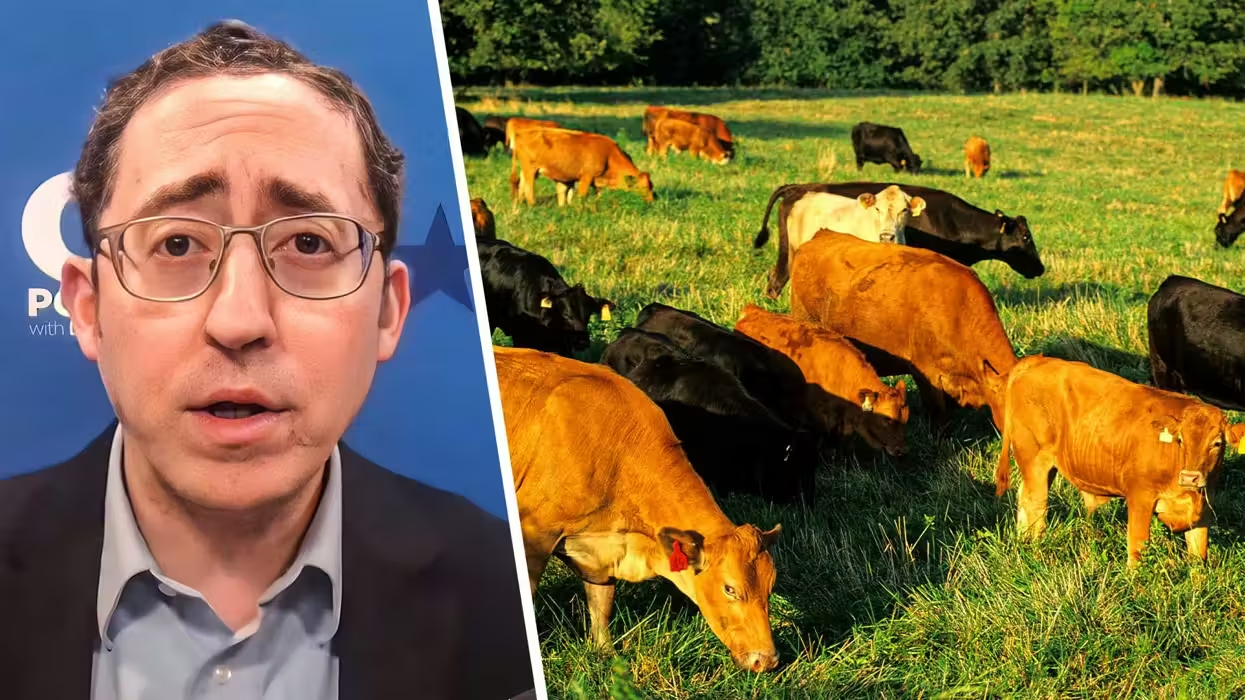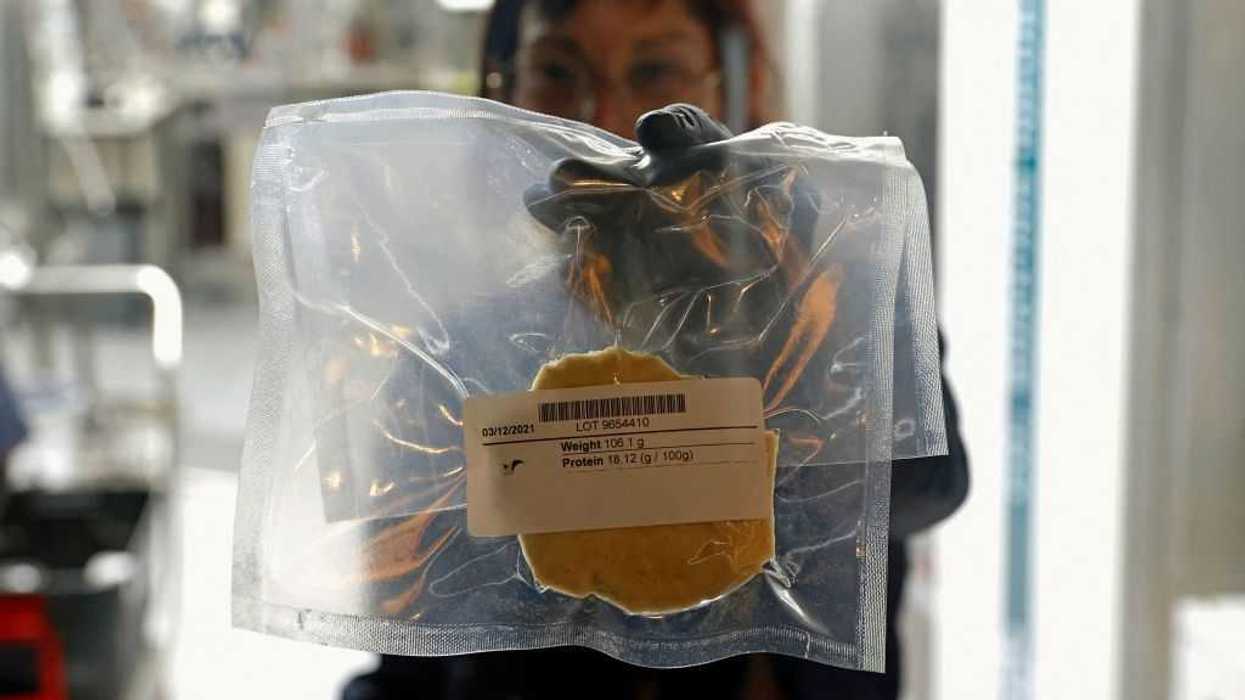MISSION, Texas — Rosalba had spent more than a week traveling from Guatemala to the U.S.-Mexico border with her baby girl, Kendra, in tow.
 A group of illegal immigrants turned themselves in to U.S. Border Patrol agents June 17, 2014, in Mission, Texas, part of the Rio Grande Valley. Communities in Texas have been overwhelmed by the increased number of illegal immigrants. (Photo: Sara A. Carter/TheBlaze)
A group of illegal immigrants turned themselves in to U.S. Border Patrol agents June 17, 2014, in Mission, Texas, part of the Rio Grande Valley. Communities in Texas have been overwhelmed by the increased number of illegal immigrants. (Photo: Sara A. Carter/TheBlaze)
The 18-month-old clung to her mother as she swept her tongue along the cracks of her tiny parched lips. Both were dehydrated; they had been hiding in the brush across the Rio Grande in 102-degree temperatures. They had waited with about two dozen others, all from Central America, until the coolness of dusk to cross the river into the United States.
The families had traveled from Honduras, Guatemala and El Salvador to reach U.S. federal law enforcement at Anzalduas Park, on the banks of the Rio Grande. Agents there have been overwhelmed with the surge of illegal crossers over the past several months. Border Patrol officials — who were armed with more bottles of water than weapons — would soon send Rosabla's group to join the 1,000 or so others at the temporary immigrant holding facility in nearby McAllen.
It was uncertain whether any in the group would see a doctor before being transferred or released from custody, Border Patrol agents on the scene told TheBlaze. Poverty and the lack of advanced health care in Central America have heightened concerns among law enforcement and medical professionals about the kinds of sickness the surge of illegal immigrants crossing the southern U.S. border could be bringing with them.
"There is really no hard stop at the border, and we have no idea health-wise what diseases are coming across," a health official who works in the McAllen border area told TheBlaze. "There’s no real medical screening either. Basically if [an illegal immigrant] tells a Border Patrol agent or law enforcement official they feel sick, or if they look sick, then they're checked. If they don't say anything, that's it, they're cleared."
He added, "And if you were feeling sick if you were illegal, would you tell anyone? They've sent children and families all across the country without medical health screenings."
The federal government "needs to realize there is a potential for a public health disaster," the official said.
Border Patrol Agent Chris Cabrera, the vice president of the National Border Patrol Council's local 3307 for the Rio Grande Valley area, said many of the people they apprehend are screened "only by Border Patrol agents who aren't qualified medical doctors."
"If they see something out of the ordinary or if someone is sick, we'll refer them to a doctor," Cabrera said.
 Border Patrol agents process a large group of families crossing illegally into the United States from Mexico on June 17, 2014, in the Rio Grande Valley. The surge of illegal immigrants over the past several months has overwhelmed law enforcement and medical officials, who are concerned that many people aren't getting medically screened before being released into the U.S. (Photo: Sara A. Carter/TheBlaze)
Border Patrol agents process a large group of families crossing illegally into the United States from Mexico on June 17, 2014, in the Rio Grande Valley. The surge of illegal immigrants over the past several months has overwhelmed law enforcement and medical officials, who are concerned that many people aren't getting medically screened before being released into the U.S. (Photo: Sara A. Carter/TheBlaze)
Kenneth Wolfe, deputy public affairs director at the Department of Health and Human Services' Administration for Children and Families, told TheBlaze that unaccompanied children are screened after they are transferred from Border Patrol custody to more permanent shelters.
"They are given a well-child exam and given all needed childhood vaccinations to protect against communicable diseases" and screened for tuberculosis, Wolfe said. "If children are determined to have any communicable disease or have been exposed to a communicable disease, they are placed in a program or facility that has the capacity to quarantine. If they have mental health problems, they are similarly placed in a specialized facility to meet their needs and not in a temporary shelter."
[sharequote align="left"]"If they look sick, then they're checked. If they don't say anything, that's it, they're cleared."[/sharequote]
According to the border health care official, area hospitals have diagnosed cases of infectious diarrhea, multi-drug resistant tuberculosis, scabies, chickenpox, and growing numbers of sexually transmitted diseases.
"If they continue to flow into the United States, the illegal immigrant population will quickly overwhelm our resources and leave officials with limited options," he said.
But even with health screening procedures in place for unaccompanied children, the same doesn't happen for kids who come with adults crossing illegally -- or for adults themselves.
"This is a failure of Health and Human Services and the federal government who knew this was coming and didn't care to prepare for it or didn't want to," said a Border Patrol official from the Rio Grande sector. "We are doing our job but the federal government is failing to do theirs. "
Members of Rosalba's group who crossed into the United States last week came with the hope that they could start a better life in America after hearing reports that the U.S. was taking people permanently as the result of a "humanitarian crisis." They told TheBlaze that family members who had crossed before them were not being returned, but instead being allowed to stay.
"The numbers keep growing," said Border Patrol Agent Albert Spratte, a liaison with the National Border Patrol Council's local 3307. "It's not slowing down. We're concerned about the health of our employees, their families and Americans. Of course we're concerned about the health of those who are crossing over, but our resources are stretched so thin we just can't keep up."
[sharequote align="right"]"If you were feeling sick if you were illegal, would you tell anyone?"[/sharequote]
Border Patrol agents loaded Rosalba, her daughter and rest of the group into another van after they checked all their belongings. They headed to the overcrowded McAllen Border Patrol station, a facility meant to hold just several hundred people but that is home to more than 1,000 illegal immigrants on any given day since the surge.
Yellow caution tape is used to separate those who are visibly ill from those who seem well, Cabrera said. The facility lacks appropriate restrooms accommodations: just eight port-a-potties, with two designated for those with infectious diseases.
"It's a rough situation for the Border Patrol agents and the illegals immigrants as well," Cabrera said. "We can only do so much and we're not doctors. We can't be sure that some of the people who've already left our facility aren't carrying something contagious. This is a situation the federal government should have already prepared for but they didn't."
—
Follow Sara A. Carter (@SaraCarterDC) on Twitter

 A group of illegal immigrants turned themselves in to U.S. Border Patrol agents June 17, 2014, in Mission, Texas, part of the Rio Grande Valley. Communities in Texas have been overwhelmed by the increased number of illegal immigrants. (Photo: Sara A. Carter/TheBlaze)
A group of illegal immigrants turned themselves in to U.S. Border Patrol agents June 17, 2014, in Mission, Texas, part of the Rio Grande Valley. Communities in Texas have been overwhelmed by the increased number of illegal immigrants. (Photo: Sara A. Carter/TheBlaze)






